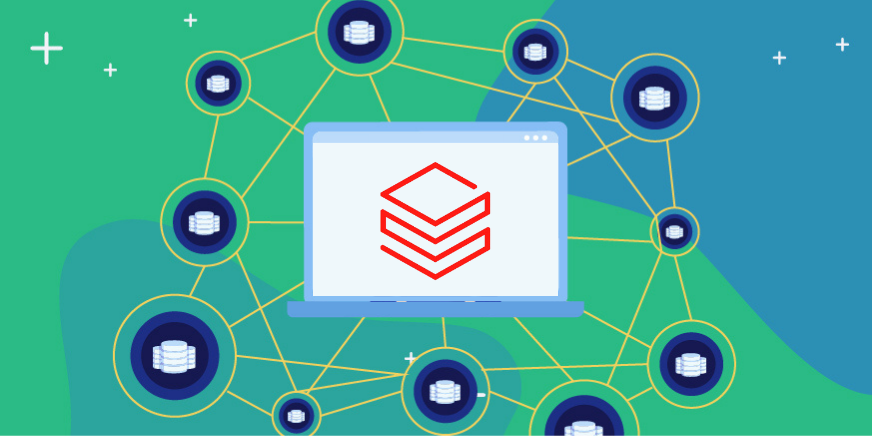Data-driven organizations collect, store and use data that often includes sensitive data. This data is typically located across multiple cloud and disparate data stores. It is important to know the location of data, particularly sensitive data because security and compliance requirements necessitate securing sensitive data.
The IBM Cost of a Data Breach 2023 report found that 82% of all data breaches involve data stored in cloud environments. Therefore, organizations must safeguard information assets from various security threats and protect against data breaches.
This is where a data security platform becomes a business need. Data security platforms proactively identify weak areas and implementing data security platforms enhances visibility and control over data usage.
Data Drives Innovation
Data-driven organizations collect large volumes of data, including sensitive PII and PHI data. Data storage is often spread across multiple and divergent data stores. Data-driven organizations must ensure that they effectively use their data to create the greatest time-to-value. Leaving untapped data reduces productive capabilities and reflects unrealized potential.
Businesses need to generate productive efficiencies and innovations to stay competitive. Creating time-to-value from data enables organizations to gain a competitive advantage.
Data helps organizations determine market conditions, solve problems, develop solutions, and innovate. The ability to share data is critical in the digital age. Data-driven organizations must access data, share it with relevant teams, and ensure they use it efficiently. This enables the organization to generate the greatest time-to-value for the organization.
Also, if the organization specializes in helping its customers analyze and use data. The faster organizations enable their customers to gain access to cloud data, it also improves their competitive advantages. A data security platform enables organizations to facilitate this process while securing sensitive data.
For data-driven businesses gaining access and sharing data enables them to obtain a competitive advantage.
What is a Data Security Platform?
Businesses require a data security solution to ensure the protection of sensitive data. A data security platform helps businesses gather, utilize, and exchange data stored in various cloud environments, efficiently and securely.
Data security platforms locate different types of data and safeguard sensitive data. This ensures consistency and compliance across databases, data warehouses, and data lakes.
After finding, organizing, and masking data, approved users need efficient access to datasets while following approval rules. Automated systems create and enforce security rules and data access controls, allowing only authorized users to access sensitive data. There are different types of access controls including attribute-based access control (ABAC), role-based access control (RBAC), self-service access control, and just-in-time access control.
A data security platform also monitors and enforces security policies on all data stores. It provides an avenue to view auditing permissions and controls further improving productivity. DSPs are a robust solution to bolster security, productivity, and compliance.
Data Security Posture Management
Data Security Posture Management (DSPM) is an important component of a data security platform. It involves the continuous assessment, analysis, and improvement of an organization’s data security practices and policies. Using advanced monitoring and auditing capabilities and a universal permissions scanner enables organizations to proactively identify vulnerabilities, compliance gaps, and potential threats across their data infrastructure.

Through centralized visibility and control, DSPM empowers security teams to prioritize and address security weaknesses promptly, ensuring that data access controls, encryption measures, and authentication protocols are consistently enforced. This fosters a culture of continuous improvement in data protection, safeguarding sensitive information.
Learn more about Satori’s Data Security Platform.
Why Businesses Implement a Data Security Platform
There are many benefits to a DSP some of these include faster organizational use of data, increased visibility through a single pane, efficient implementation of security policies, and improved productivity of data and security teams. Since organizations increasingly move their information assets to the cloud, they must implement a DSP to safeguard their data. A DSP can offer the following benefits for any organization.
- Enables faster organizational work with data by streamlining access controls and authentication processes, reducing time spent on manual security tasks. With enhanced data protection measures, teams can confidently collaborate and share information, accelerating decision-making and productivity.
- A single pane allows data engineering teams to easily access and implement security policies across all data repositories, enhancing visibility and control. This centralized view of data activity ensures real-time monitoring and enables prompt response to potential security threats, bolstering the organization’s overall data protection posture.

- Security teams are empowered to directly enforce data security and access control policies directly, eliminating the dependency on data engineering teams for routine security tasks. This streamlined process saves time and resources and enhances the organization’s agility in responding to evolving security requirements, ensuring a robust and proactive data protection approach.
- Automating repetitive tasks, allowing them to focus on higher-value activities such as analyzing security risks and optimizing data workflows. With streamlined processes and centralized management, data and security teams can collaborate more effectively, resulting in faster decision-making and improved overall efficiency.

- Companies handle sensitive data like customer information, financial records, intellectual property, and business secrets. A data security platform protects data from unauthorized access or leaks. It also safeguards the organization’s reputation and helps avoid legal and financial problems.
- Compliance requirements: Various industries have specific regulations and legal requirements governing data protection and privacy. Implementing a data security platform ensures that the organization complies with these regulations, avoiding penalties and sanctions for non-compliance.
- Mitigating cyber threats: Cybersecurity threats are constantly evolving and becoming more sophisticated. Data security platforms use advanced technologies and tools to detect and prevent threats. Using a data security platform reduces the risk of data breaches.
- Maintaining customer trust: Data breaches and security incidents can significantly damage a company’s reputation and erode customer trust. By investing in data security, businesses demonstrate their commitment to safeguarding customer data, which enhances trust and loyalty among their clients.
- Business continuity and resilience: Data security platforms protect against cyberattacks and help ensure business continuity in the face of potential disruptions. Having robust data security measures allows organizations to recover more quickly from security incidents and resume normal operations.
- Strong data security practices can give businesses an edge over competitors, especially when handling sensitive customer data. Clients are more likely to choose a company that makes data security and privacy a top priority.
A data security platform is important for protecting an organization’s data and meeting compliance requirements. Moreover, it helps in creating a safe environment for customers and stakeholders. This enables businesses to share data quickly and easily, generating time-to-value efficiently.
Conclusion
Businesses need to implement data security platforms to ensure that they gain full visibility over their entire data stack. This will enable them to maximize the use of their data, including sensitive data, regardless of its storage location.
Satori’s Data Security Platform is easily adaptable and scalable to your organization’s size and variety of data stores. It keeps your data safe, helps you meet regulations, and maximizes the value of your data.
To learn more about how Satori can optimize your time-to-value securely, book a 30-minute consulting call with one of our experts.



